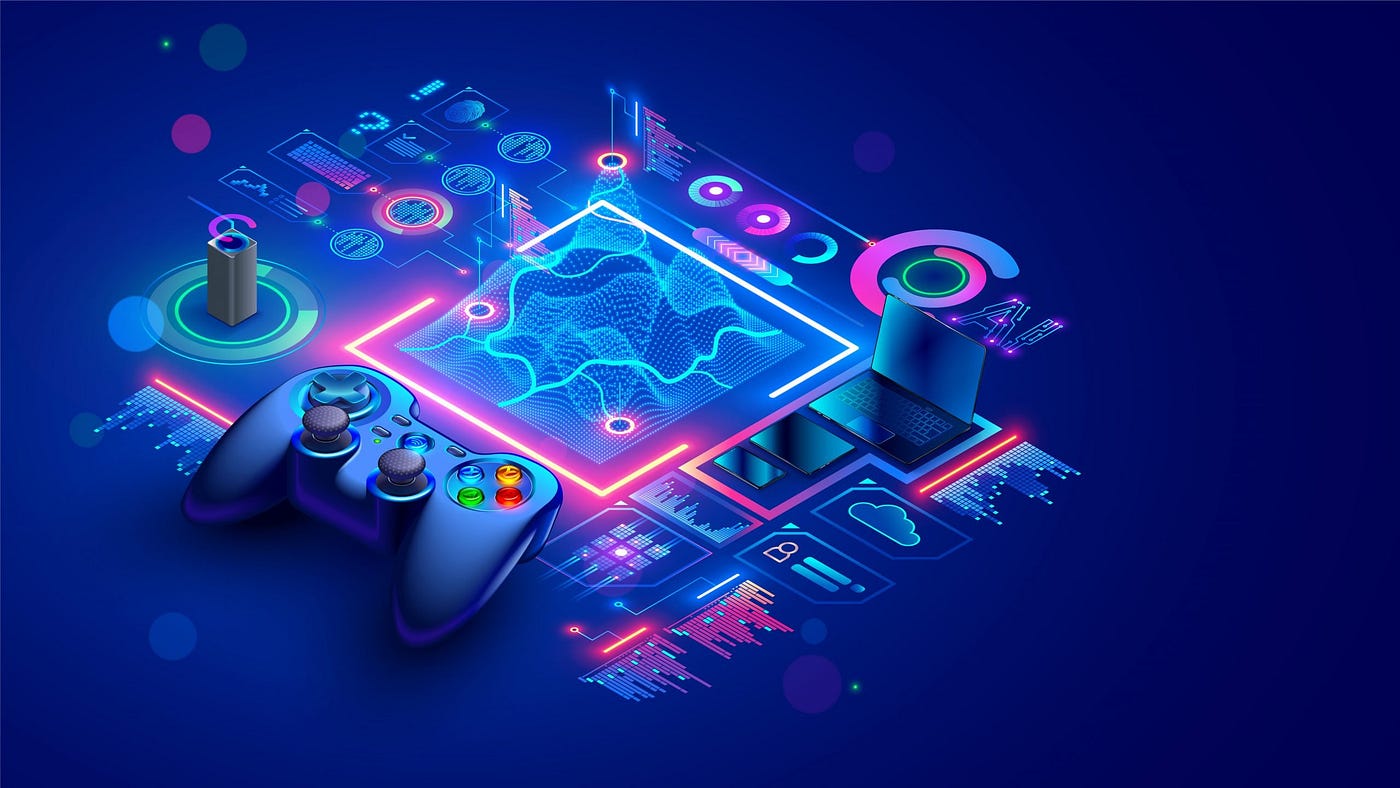Artificial Intelligence (AI) has become an integral part of various industries, revolutionizing processes and enhancing efficiency. In the realm of entertainment, particularly in game development, AI’s role has been transformative. From shaping game design to enriching player experiences, AI’s influence is pervasive and profound.
Introduction to Artificial Intelligence (AI)
AI refers to the simulation of human intelligence in machines, enabling them to perform tasks that typically require human intelligence, such as learning, reasoning, and problem-solving. In the context of game development, AI algorithms empower game systems to exhibit behaviors and make decisions autonomously, mimicking human-like intelligence.
Evolution of AI in Game Development
Early Days
In the early stages of slot pay4d game development, AI was rudimentary, primarily focusing on scripted behaviors and simple decision trees. Games relied on predetermined scenarios and static environments, limiting the scope of player interaction and immersion.
Modern Advancements
With advancements in technology and AI algorithms, game developers now have access to sophisticated tools and techniques. Machine learning and neural networks enable dynamic and adaptive gameplay experiences, where game elements evolve based on player actions and preferences.
The Role of AI in Game Design
Procedural Generation
AI-driven procedural generation algorithms generate game content, such as levels, environments, and missions, dynamically. This approach enhances replayability and reduces development time, as content is generated algorithmically rather than manually designed.
Adaptive Difficulty
AI algorithms analyze player behavior in real-time to adjust the game’s difficulty level accordingly. By dynamically scaling the challenge based on the player’s skill level and progress, games can provide a tailored experience that remains engaging and accessible.
Non-player Character (NPC) Behavior
AI-controlled NPCs exhibit lifelike behaviors, responding to the player’s actions and interacting with the game world autonomously. Advanced AI algorithms enable NPCs to simulate emotions, learn from experiences, and adapt their strategies, enhancing realism and immersion.
AI and Game Testing
Automated Testing
AI-powered testing tools automate the process of identifying bugs, glitches, and balance issues in games. Through simulation and analysis, these tools detect anomalies and optimize game mechanics, ensuring a seamless and enjoyable player experience.
Quality Assurance
AI algorithms assist in quality assurance by analyzing player feedback, telemetry data, and gameplay metrics. By identifying patterns and trends, developers can refine gameplay mechanics, address performance issues, and optimize game balance, enhancing overall quality and user satisfaction.
AI in Player Experience Enhancement
Personalization
AI algorithms analyze player preferences, play styles, and interactions to personalize the gaming experience. From recommending content and adjusting difficulty levels to providing tailored challenges and narratives, AI-driven personalization enhances player engagement and retention.
Immersion
By simulating realistic behaviors and interactions, AI enhances immersion by creating dynamic and responsive game worlds. Whether through lifelike NPCs, dynamic environments, or adaptive storytelling, AI-driven immersion deepens player involvement and emotional investment in the game.
Challenges and Limitations of AI in Game Development
Ethical Considerations
The use of AI in game development raises ethical concerns regarding privacy, bias, and representation. Developers must ensure that AI algorithms adhere to ethical standards and promote inclusivity, diversity, and responsible gameplay.
Overreliance
While AI offers numerous benefits, overreliance on AI-driven solutions can lead to dependency and creative stagnation. Developers must strike a balance between leveraging AI’s capabilities and preserving human creativity and ingenuity in game design and development.
Future Trends in AI and Game Development
Virtual Reality (VR) Integration
The integration of AI and virtual reality technologies holds immense potential for immersive and interactive gaming experiences. AI-driven VR environments can adapt to user actions and preferences in real-time, creating highly personalized and captivating virtual worlds.
Enhanced Storytelling
AI algorithms are increasingly used to enhance storytelling in games, enabling dynamic narratives that evolve based on player choices and interactions. From branching storylines to personalized character arcs, AI-driven storytelling creates engaging and immersive narrative experiences.
Conclusion
Artificial Intelligence plays a pivotal role in shaping the future of game development, enabling innovative gameplay experiences, enhancing immersion, and redefining storytelling. As technology continues to evolve, the synergy between AI and game development promises to unlock new realms of creativity and engagement, enriching the gaming landscape for poker online players worldwide.
